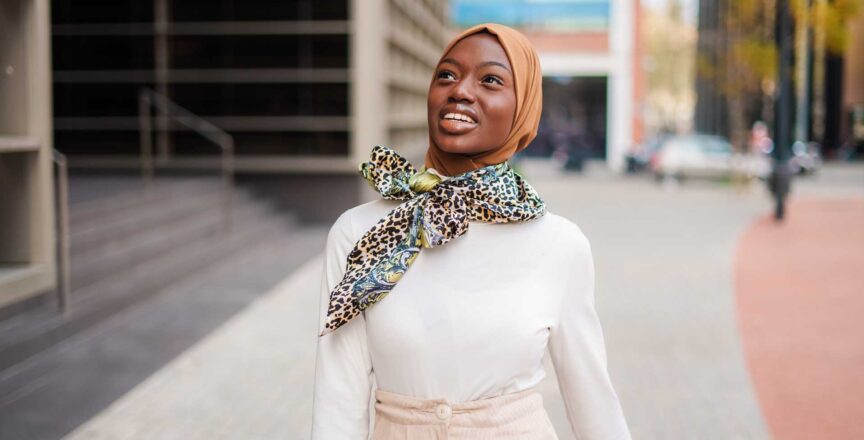
Are you an introverted Black woman who feels drained by social interactions at work? Or do you want to support such a woman in your life? Then this article is for you!
Being an introvert in an extroverted world can be tough. Being a Black woman in a corporate world can be tougher. But don’t worry, we’ve got your back.
This article will help you understand how introverts recharge, and how you can do it in the context of Black women at work. You’ll also learn how to cope with the challenges you face, and how to create a more inclusive work environment.
So sit back, relax, and let’s find out how introverts recharge!

Understanding Introversion
Introversion is often misunderstood. Some people think it’s just about being shy or antisocial. But that’s like saying a zebra is a horse that’s been through a barcode scanner – it’s not quite right!
Introverts are people who recharge by spending time alone. They lose energy from being around people for long periods of time, particularly large crowds. So, if you’re an introvert, it’s not that you always want to be alone, but that you need to be alone to recharge your batteries.
Common Misconceptions About Introverts
There are many misconceptions about introverts. Some people think they’re just shy, antisocial, or even rude. But these are stereotypes, not facts. Here are some common misconceptions:
- Introverts are shy: Shyness is about fear of social judgment. Introversion is more about how you respond to stimulation, including social stimulation. So while shyness and introversion can coexist in the same person, they’re not the same thing.
- Introverts don’t like to be around people: This is a myth. Introverts just prefer to be around people in a different way than extroverts do. For example, an introvert might prefer a quiet conversation with a close friend over a loud party with lots of people.
- Introverts are rude: Introverts often need time alone to recharge, and this can sometimes be mistaken for rudeness or aloofness. But needing time alone is not the same as disliking people.
The Strengths and Challenges of Being an Introvert
Being an introvert comes with its own set of strengths and challenges. On the one hand, introverts are often great listeners and deep thinkers.
They have a knack for introspection and self-awareness. On the other hand, they can struggle in social situations and often feel drained after spending too much time around other people.
But remember, being an introvert isn’t good or bad. It’s just a way of relating to the world. And like any way of being, it comes with its own unique set of strengths and challenges.
The Experience of Introverted Black Women in the Workplace
Being an introverted Black woman in the workplace can feel like being a cat in a dog show – you’re not quite sure how you ended up there, but you’re doing your best to fit in!
Unique Challenges Faced by Introverted Black Women at Work
Introverted Black women face a unique set of challenges in the workplace. These can include:
- Bias and Stereotypes: Introverted Black women often face bias and stereotypes, both because of their race and their introverted nature. This can lead to them being overlooked for promotions or being misunderstood by their colleagues.
- Pressure to Conform: There can be pressure to conform to extroverted norms in the workplace. This can be exhausting for introverts, who need time alone to recharge.
- Microaggressions: Microaggressions are subtle, often unintentional, acts of discrimination. Introverted Black women may face microaggressions related to both their race and their introversion.
The Impact of Microaggressions and Bias on Introverted Black Women
Microaggressions and bias can have a significant impact on introverted Black women. They can lead to feelings of isolation, stress, and burnout. It’s like being a cactus in a rose garden – you’re constantly pricked by thorns that others don’t even seem to notice.
The Pressure to ‘Code Switch’ and Its Effects on Energy Levels
‘Code switching’ is when individuals adjust their behavior, language, or appearance to fit in with different cultural norms. For introverted Black women, this can mean acting more extroverted at work, which can be incredibly draining.
But remember, it’s okay to be a cactus in a rose garden. Cacti are resilient, unique, and beautiful in their own way – just like introverted Black women.
How Introverts Recharge
Imagine you’re a smartphone. After a long day of use, your battery is running low. You need to plug in and recharge, right? Well, introverts are the same. After social interactions, they need time alone to recharge their internal batteries.
Explanation of How Introverts Recharge Their Energy
Introverts recharge their energy by spending time alone. This can involve various activities that they enjoy and that allow them to relax and reflect. It could be reading a book, listening to music, going for a walk in nature, or simply sitting quietly with their thoughts.
The Importance of Downtime and Solitude for Introverts
Downtime and solitude are not just nice to have for introverts – they’re a necessity. Without this time to recharge, introverts can become overwhelmed, stressed, and burnt out. It’s like trying to keep using that smartphone when it’s flashing ‘low battery’ – it’s not going to work well!
Practical Strategies for Recharging at Work
Recharging at work can be a challenge for introverted Black women, but there are strategies that can help:
- Take Regular Breaks: Short breaks throughout the day can help you recharge. This could be a walk outside, a few minutes of quiet reflection, or even just a moment to enjoy a cup of tea.
- Create a Quiet Space: If possible, create a quiet space where you can go to recharge. This could be an unused office, a quiet corner, or even just putting on headphones to block out noise.
- Set Boundaries: It’s okay to say no to non-essential meetings or social events if you’re feeling drained. Remember, your energy is important too!
Remember, recharging isn’t about being antisocial or unproductive – it’s about taking care of your energy so you can be your best self at work.
Creating an Inclusive Work Environment for Introverted Black Women
Creating an inclusive work environment for introverted Black women is like planting a garden. It requires patience, understanding, and the right conditions for growth. But the result – a vibrant, diverse, and thriving workplace – is well worth the effort.
The Role of Employers and Colleagues in Supporting Introverted Black Women
Employers and colleagues play a crucial role in supporting introverted Black women. This can involve:
- Understanding and Respecting Introversion: Recognize that introversion is not a flaw, but a different way of interacting with the world. Respect the needs of introverted employees for quiet and solitude.
- Fostering Open Communication: Encourage open communication about individual needs and preferences. This can help introverted employees feel understood and supported.
- Providing Flexible Work Options: Offer flexible work options, such as remote work or flexible hours, that can help introverted employees manage their energy.
Strategies for Fostering a More Inclusive and Understanding Work Environment
Here are some strategies to foster a more inclusive and understanding work environment:
- Education: Educate employees about introversion and the unique experiences of introverted Black women. This can help dispel myths and foster understanding.
- Inclusive Policies: Implement inclusive policies that take into account the needs of introverted employees. This could include quiet spaces in the office or flexibility in how work is done.
- Regular Check-Ins: Regular check-ins can help ensure that introverted employees feel supported and heard.
Tips for Communicating Effectively with Introverted Black Women
Effective communication with introverted Black women involves respect, patience, and understanding. Here are some tips:
- Give Them Time to Think: Introverts often prefer to think before they speak. Give them time to process information and formulate their thoughts.
- Respect Their Need for Space: Introverts need space to recharge. Respect their need for solitude and don’t take it personally.
- Use Written Communication: Introverts often prefer written communication as it allows them time to think and respond at their own pace.
Creating an inclusive work environment is not just about policies and practices – it’s about fostering a culture of respect and understanding.
Personal Stories and Experiences
Everyone loves a good story, right? Well, buckle up, because we’re about to dive into some real-life experiences of introverted Black women in the workplace. It’s like getting a backstage pass to their lives – minus the stage fright!
Quotes and Stories from Introverted Black Women About Their Experiences at Work
Let’s start with some quotes from introverted Black women who’ve been there, done that, and got the T-shirt (or should we say, the office ID badge?).
- Story 1: “As an introverted Black woman, I often feel like I’m walking a tightrope. I have to balance my need for solitude with the expectations of my colleagues. It’s not always easy, but I’ve learned to set boundaries and make time for myself.” – Jane Doe, Software Engineer
- Story 2: “Working in a predominantly extroverted environment can be challenging. But I’ve found that being upfront about my introversion helps. I let my team know that I need quiet time to recharge and they’ve been understanding.” – Mary Johnson, Marketing Manager
- Story 3: “I used to think there was something wrong with me because I preferred quiet spaces and alone time. But now I realize that it’s just part of being an introvert. And that’s okay.” – Lisa Smith, HR Specialist
Lessons Learned and Advice for Other Introverted Black Women
From these stories, we can glean some valuable lessons and advice:
- Set Boundaries: It’s okay to set boundaries and make time for yourself. Your energy is important too!
- Communicate Your Needs: Being upfront about your introversion can help others understand your needs.
- Embrace Your Introversion: There’s nothing wrong with being an introvert. Embrace your unique strengths and don’t be afraid to be yourself.
Everyone’s experience is unique. But by sharing our stories, we can learn from each other and create a more inclusive and understanding workplace.
Conclusion
And there you have it! A comprehensive guide on how introverted Black women can recharge in the workplace. We’ve explored the unique challenges they face, debunked some common misconceptions about introversion, and provided practical strategies for recharging and creating an inclusive work environment.
Remember, being an introvert is not a weakness, but a different way of interacting with the world. And being a Black woman in the workplace is not a challenge, but an opportunity to bring diversity and unique perspectives.
So, whether you’re an introverted Black woman looking for ways to recharge, or an employer seeking to create a more inclusive workplace, we hope this guide has been helpful. After all, understanding is the first step towards acceptance and change.
And remember, just like a smartphone needs to recharge after a long day of use, so do you. So go ahead, take that well-deserved break. You’ve earned it!
Thank you for joining us on this enlightening journey. We hope you found it as engaging and informative as we did creating it. Until next time, keep shining and keep recharging!
FAQ on How Introverts Recharge
Q: Are all introverts shy? A: No, not all introverts are shy. Shyness is about fear of social judgment, while introversion is about how you respond to stimulation, including social stimulation.
Q: Do introverts dislike people? A: No, introverts don’t dislike people. They just prefer to interact with people in a different way than extroverts do.
Q: Can introverts be successful in the workplace? A: Absolutely! Introverts bring unique strengths to the workplace, such as deep thinking, listening skills, and a thoughtful approach to problem-solving.
Q: How can extroverts better understand introverts? A: Extroverts can better understand introverts by learning about introversion, respecting their need for solitude, and communicating with them in a way that respects their preferences.
Q: Can an introvert become an extrovert? A: Introversion and extroversion are core aspects of our personalities. While people can learn to adapt to different situations, an introvert cannot become an extrovert, and vice versa.
Last modified: October 16, 2023



